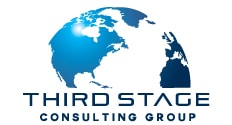Guide to a successful Dynamics 365 transformation from Third Stage Consulting

Implementation of Microsoft Dynamics 365 is not an easy task. This software is equipped to transform your business with its comprehensive and extensive features. On the other hand, the flexibility of the software can be so overwhelming that it ultimately fails to deliver an optimal transformation. Third Stage Consulting is an international consultancy specialising in all aspects of ERP solutions. Third Stage have recently analysed their experience of supporting companies during the implementation of Dynamics 365 to identify the key best practices that are most likely to lead to a successful transformation. Unbiased and unfiltered. Most of these experiences also apply to companies working with technologies other than Dynamics 365.
It is always good to learn from organisations that have already gained experience. This is especially true when it comes to setting up business-critical systems such as an ERP solution. Life is just too short to make all the mistakes yourself, isn’t it? Here are three valuable observations that Third Stage Consulting has made while supporting Dynamics 365 implementations around the world. There are also practical tips to make your project a real success.
The agility of Dynamics 365 is a double-edged weapon
Dynamics 365 is one of the more flexible ERP systems on the market. In today’s turbulent world, this is of course an advantage. But there are also disadvantages. It is precisely this flexibility that often leads to (far) more customisation than you actually need. In other words: the option to easily change your software does not mean that you always have to do so! You should only make adjustments if you want to incorporate your company’s secret recipe or your unique selling points compared to the competition into the concept.
Don’t be confused by the familiar look and feel of Microsoft
When we see demos of Dynamics 365 or browse through the system in a customer’s conference room during a pilot project, it’s pretty obvious that we’re looking at a Microsoft product. It looks and feels like a Windows-based computer. You might think that the product is therefore relatively easy to learn. And that’s exactly why you might underestimate the effort required for effective organisational change management, end-user training and communication. Don’t fall into this trap.
A postmodern ERP solution requires solid IT skills
In addition to its flexibility, the open architecture of Dynamics 365 makes integration with other systems quite simple. Some users utilise Dynamics 365 as a central back office system and integrate it with other best-of-breed systems such as CRM, HCM or BI tools. This approach is also known as the “postmodern” approach and can be a sensible alternative. However, you should also be aware that this approach requires a certain level of internal IT expertise and support.
Our target as a Microsoft partner is not only to sell software licences, but to realise a maximally successful project together with our customers. We hope that the observations and tips from Third Stage will support you in your decisions.
Would you like to find out more about what we can do to optimise your processes and your organisation with the help of our Dynamics 365 solution? Please get in touch with Mr Markus Köhler today.


